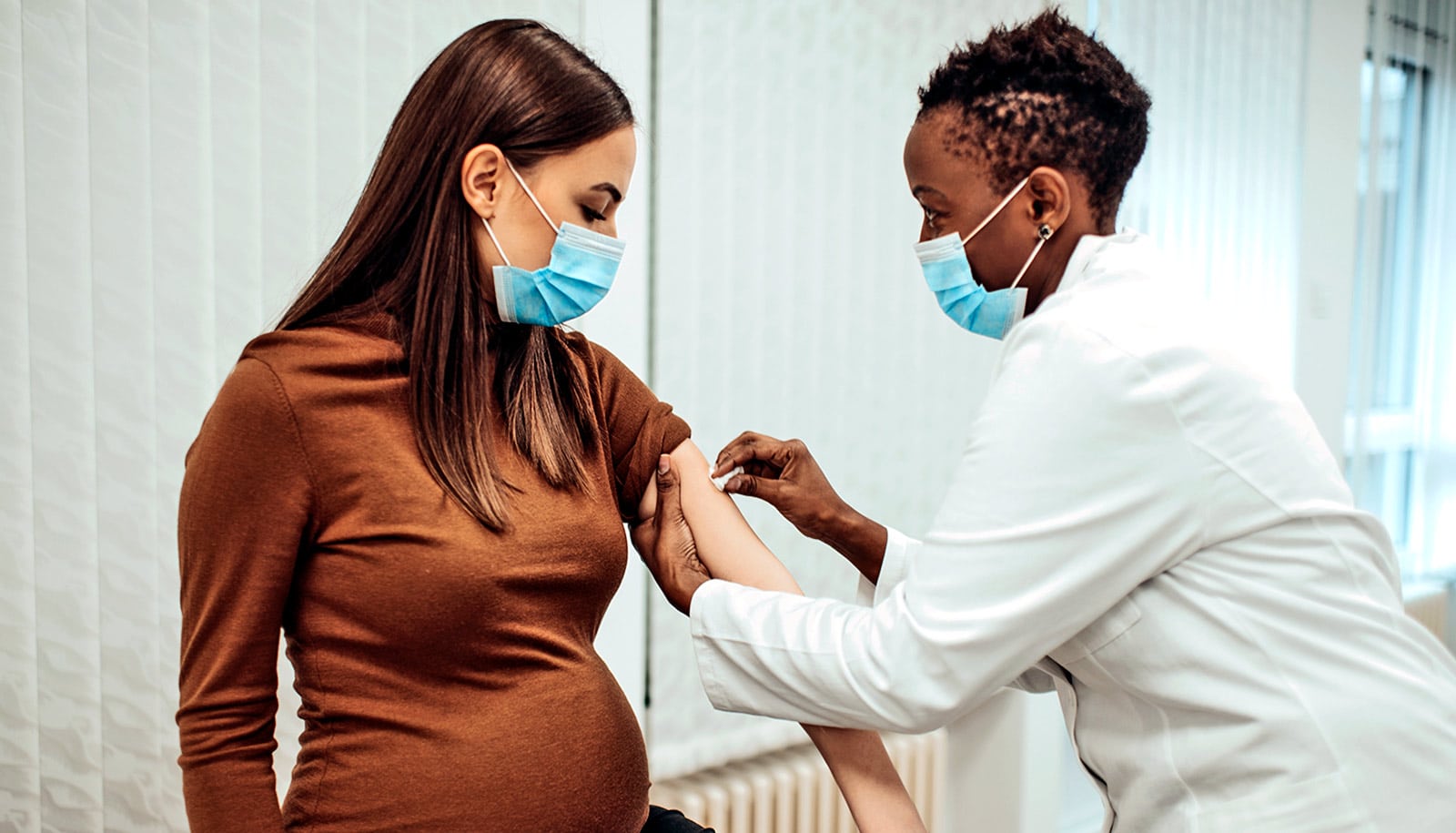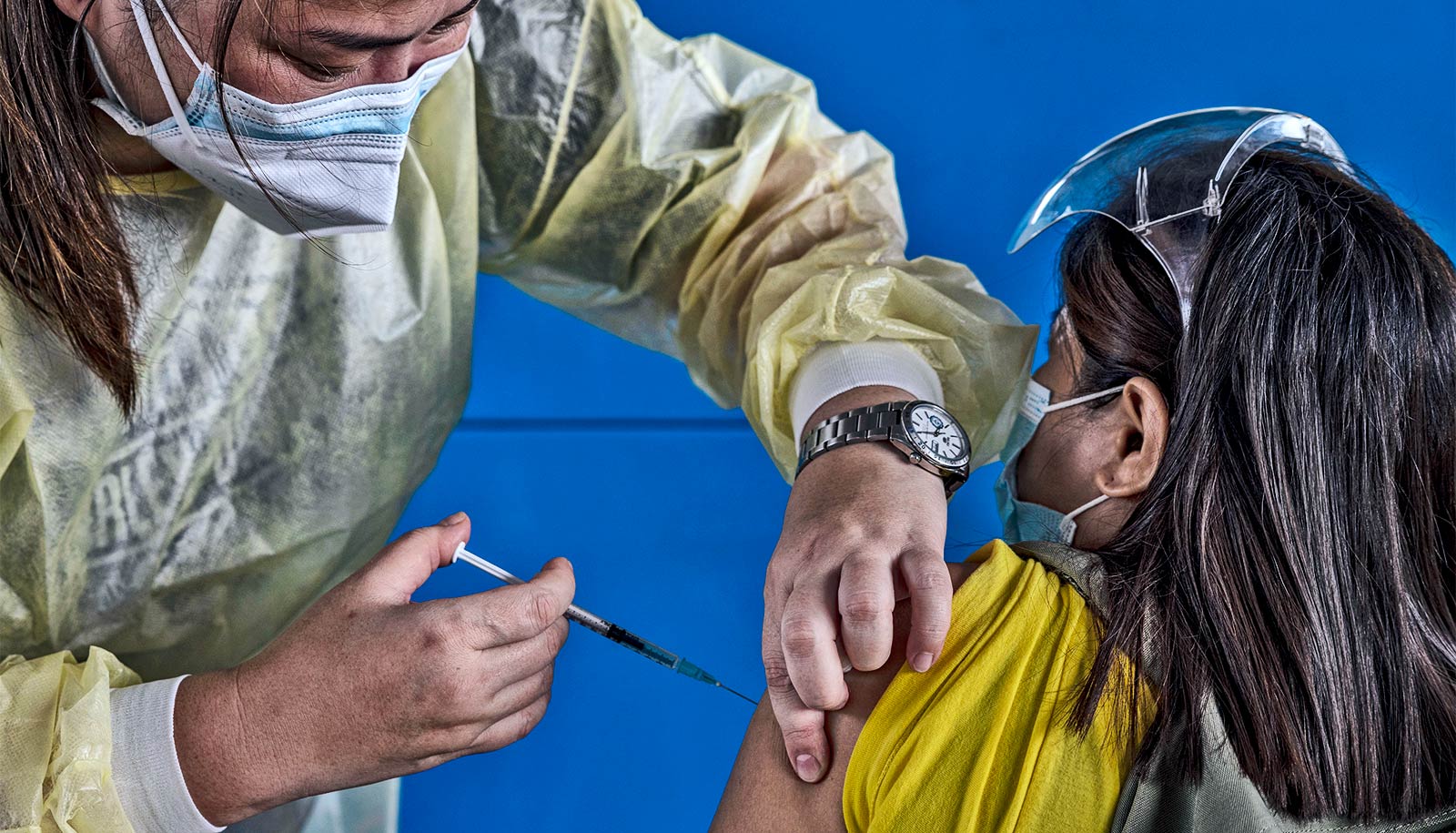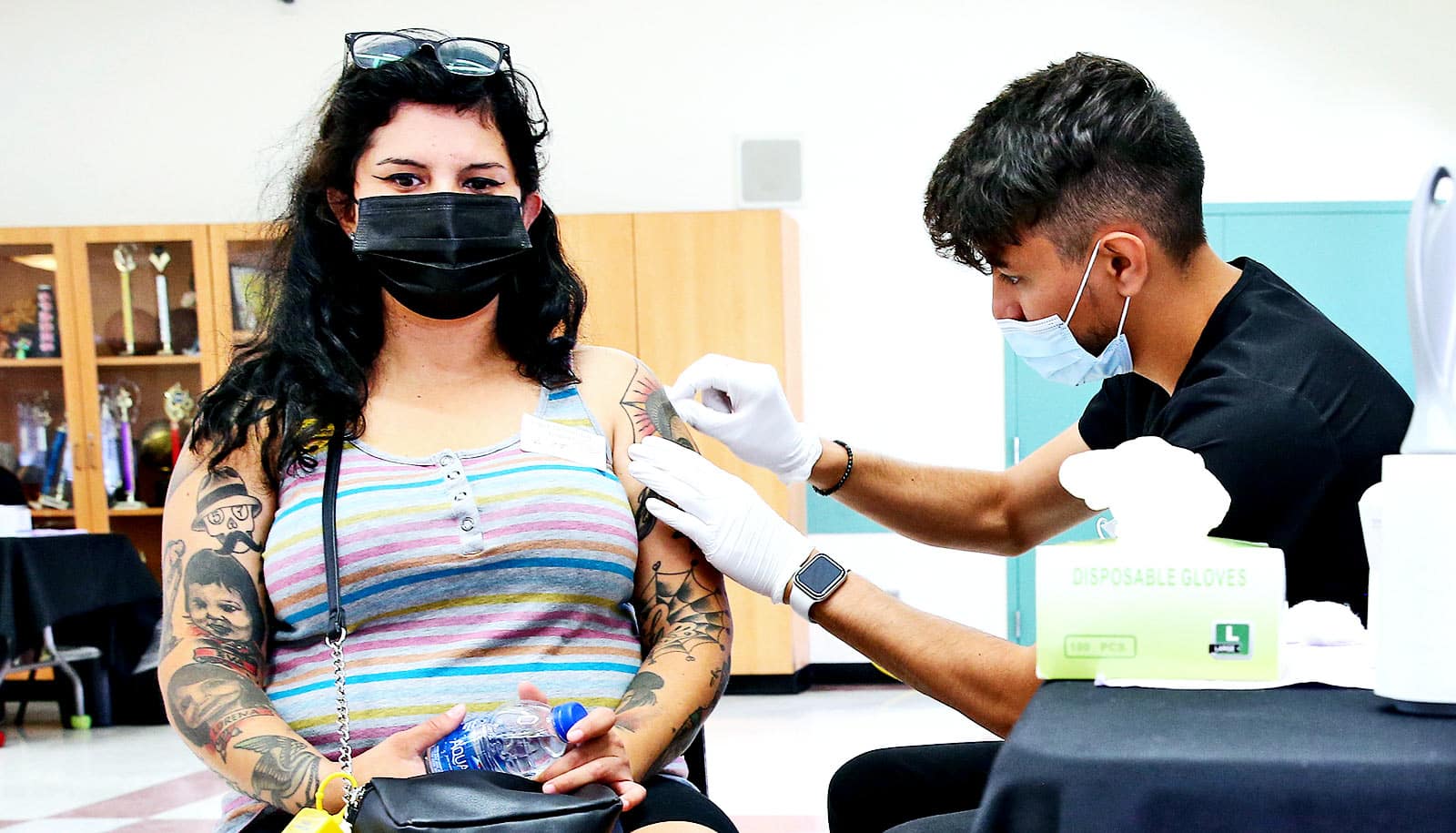A survey of more than 17,000 pregnant and lactating people who received the COVID-19 vaccine showed that they did not experience symptoms any more severe than their non-pregnant counterparts.
The study in JAMA Network Open shows “there were not any increased reactions in pregnant individuals beyond what is expected from a vaccine” says Linda Eckert, a professor of obstetrics and gynecology at the University of Washington School of Medicine and the study’s senior author.
“Pregnant people do well with the vaccine,” adds lead author Alisa Kachikis.
The findings come a week after the Centers for Disease Control and Prevention formally recommended that all pregnant women get vaccinated against the virus. The CDC reported that only 23% of US pregnant women were vaccinated as of the end of July. The percentage is even lower among Black and Latina women.
“We hope that this data will be another reassuring piece of information… about why pregnant individuals need to get vaccinated against COVID-19,” Eckert says. “Not only is the vaccine safe, our research shows just how well the vaccine is tolerated in pregnant individuals—which is a common fear I hear from my patients. In contrast, we are continuing to learn more and more about just how dangerous COVID-19 infections are in pregnancy.”
In January 2021, Kachikis set up an online cohort study of women: those who were pregnant or lactating and those who were neither pregnant nor lactating. The women were invited to describe their reactions after receiving at least one dose of a COVID-19 vaccine. By March, 17,525 people had responded.
The respondents comprised women who were pregnant (44%) or lactating (38%) and those who stated plans to get pregnant in the near future (15%).
The majority (62%) received the Pfizer vaccine and most of the participants resided in the United States. Respondents reported pain at the injection site (91%) and fatigue (31%), and a mean temperature of 100 degrees Fahrenheit after the shot. A small group (5-7%) reported a decrease in milk supply post-vaccination.
The study supports that women tolerate the vaccine well and that they should be included in clinical trials for other relevant vaccines, Eckert says.
“I’m not surprised but I am pleased by the outcome. It’s further evidence that the vaccine is safe and well-tolerated in pregnant individuals.”
There are currently 20,000 women enrolled in the study and new respondents continue to post their experiences, Kachikis adds.
The researchers hope to expand the study to other socioeconomic groups and to women not so closely tied to heath care, as this group was, Eckert says.
“I think this gives a level of evidence to advocate for Phase 3 trials (for pregnant individuals) in the future,” Eckert says.
Aside from the CDC vsafe registry, this is the largest US study of this issue. Canada has created a registry based on Kachikis’ model.
The research received support from the National Center For Advancing Translational Sciences and by the National Institute of Child Health and Human Development Women’s Reproductive Health Research Award for the purposes of design and conduct of the study; collection, management, analysis, and interpretation of the data. The UW Institute of Translational Health Science provided administrative Research Electronic Data Capture support for this project and was supported by grants from NCATS.
The content is solely the responsibility of the authors and does not necessarily represent the official views of the National Institutes of Health.
Source: University of Washington



